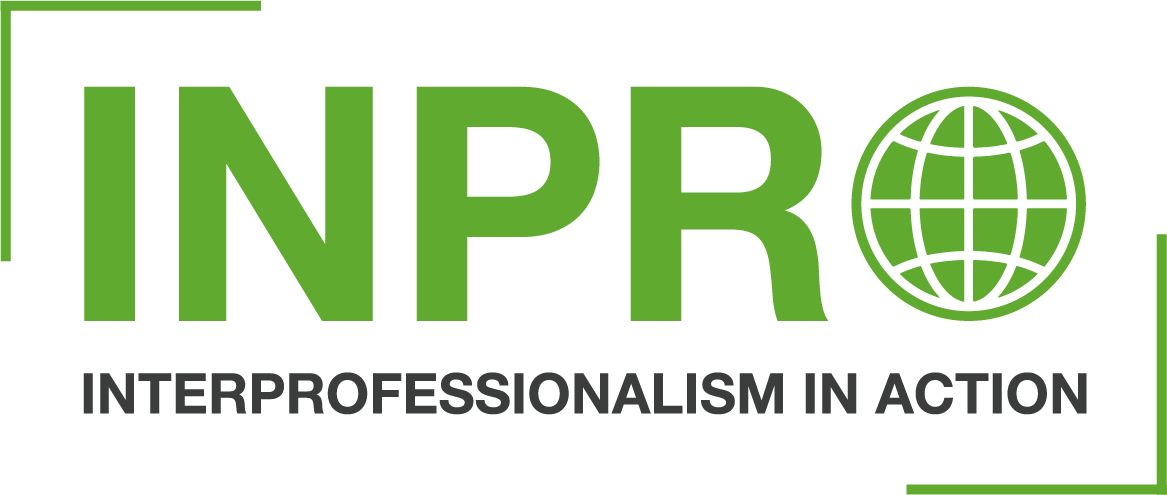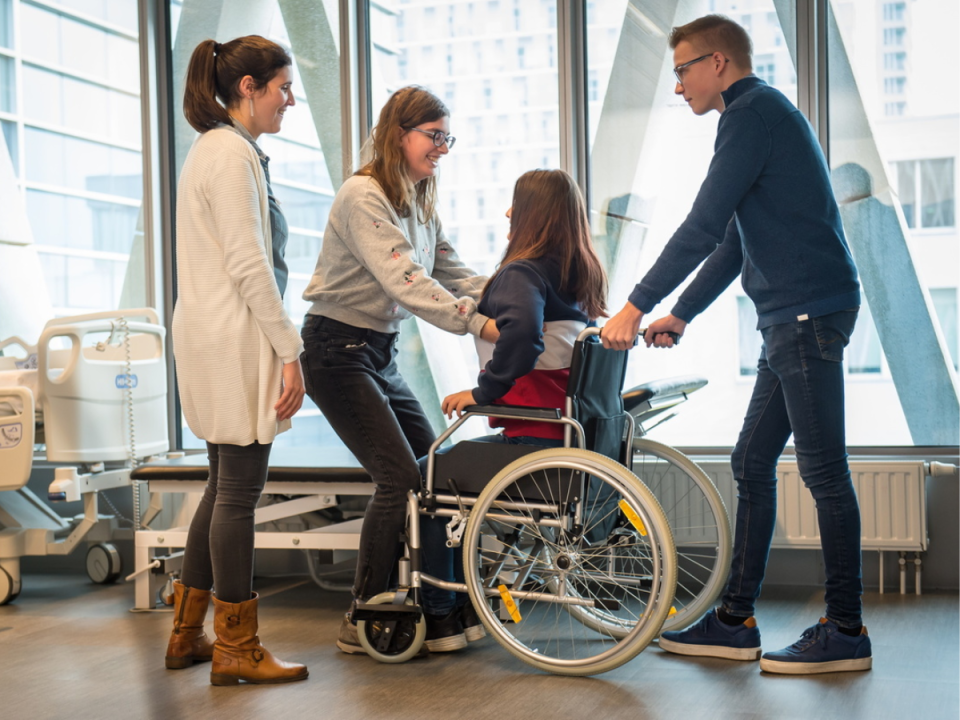
The pressure on the European health care system is increasing considerably: more elderly people and patients with chronic diseases in need of (rehabilitation) care, a diminishing work force and health care costs continuing to rise. Several measures to counteract this are proposed, such as reduction of the length of stay in hospitals or rehabilitation centres by improving interprofessional and person-centred collaboration between health and social care professionals. Although there is a lot of attention for interprofessional education and collaborative practice (IPECP), the consortium sensed a gap between the competency levels of future professionals and the levels needed in rehabilitation practice. Therefore, the transfer from tertiary education to practice concerning IPECP in rehabilitation was the central theme of the project.
Regional bonds between higher education institutions and rehabilitation centres were strengthened in order to align IPECP. The central question guiding this study revolved around the possibility of merging interprofessional collaboration, lifelong learning, the International Classification of Functioning, Disability and Health (ICF), and the Rehabilitation Competency Framework (RCF) into a unified competency framework that can be used in both education and in the work field. The result is the INPRO Competency Framework that is readable, accurate, applicable, and accepted. It contains five domains, 17 competencies, and 200 learning outcomes or behaviors. It exists in four languages (Dutch, Finnish, English, German). Also, applications of this theory in promising approaches, both in education and in rehabilitation practice, were regionally piloted and adapted for use in other regions. Field visits by professionals from practice to exchange experiences were included in this work package.
We aimed to deliver a range of learning materials, from modules on theory to guidelines on how to set up and run a student-run interprofessional learning ward in a rehabilitation centre. All tested outputs were published on the INPRO-website and made available to be implemented in the core curricula in tertiary education and for lifelong learning in health care practice. This ultimately contributed to improving functioning and health outcomes and the quality of life of patients in rehabilitation centres and beyond.
All these materials can be found and downloaded from the website: www.inproproject.eu.






